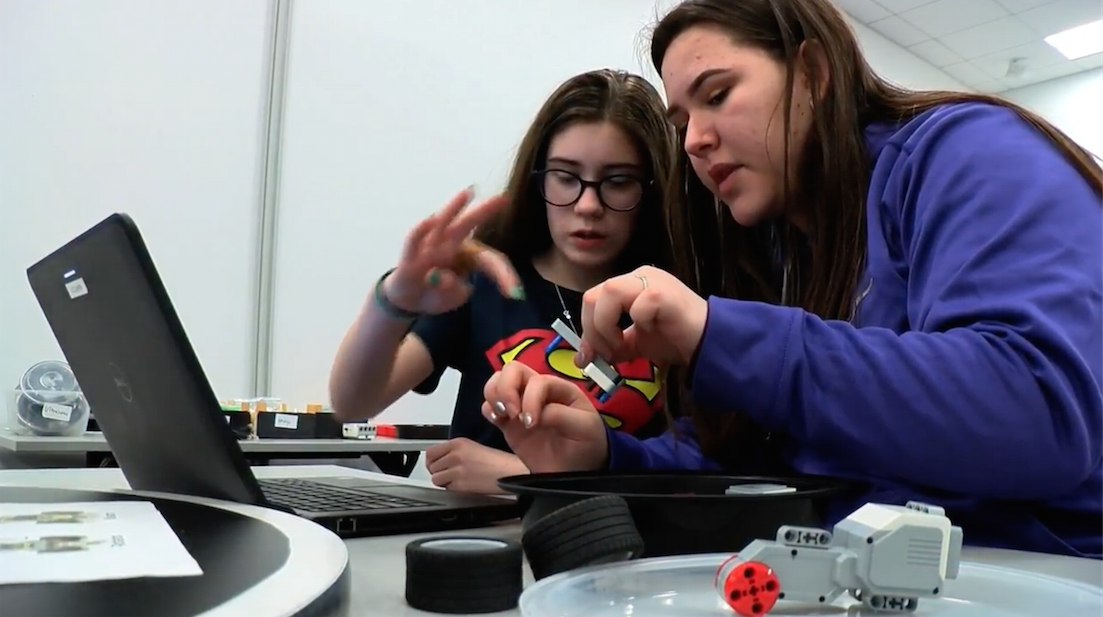
Code Week hosted at the MGHPCC brings a coding and robotics experience to all seventh and eighth grade students in the Holyoke Public School system.
Holyoke Codes - video credit: Holyoke Public Schools Media Center.
This spring, for the third year in a row, MGHPCC and Holyoke Codes hosted their Code Week program for Holyoke Public Middle Schools.
The program intentionally includes all 7th and 8th graders, not just those who opt in, so the 400+ students from each grade participate. For each student, during their four, 1.5 hour sessions spread out over a single week during the spring term, each seventh grader receives a tour the state-of-the-art data center, builds robotic catapults, codes games, creates mobile apps, and builds an autonomous vehicle. For 8th graders the program consists of two 1.5 hour robotics workshops where students code an app to control a rover for a simulated mission to Mars and to build autonomous SumoBots for a friendly competition.
2018 marked the third year this program has been offered to 7th graders, the second to offer 8th grade classes. Now veterans of last year’s 7th grade program, this year's 8th graders were able to build on that and tackle more sophisticated projects.
Holyoke Codes is an education and outreach program of the MGHPCC in partnership with local IT educators and professionals. Our overall goal is to provide access to engaging and successful technology experiences for students who would not otherwise have this opportunity and to encourage participation in STEM activities in school and at home. Since 2014, more than 2,800 kids have attended Holyoke Codes workshops. To increase our effectiveness, we partner with the Holyoke Public Schools and other organizations including Girls Inc. of Holyoke, the Holyoke Youth Task Force, Holyoke Cultural Council, Holyoke Public Library, and Holyoke Community College.
2018 Summer Program